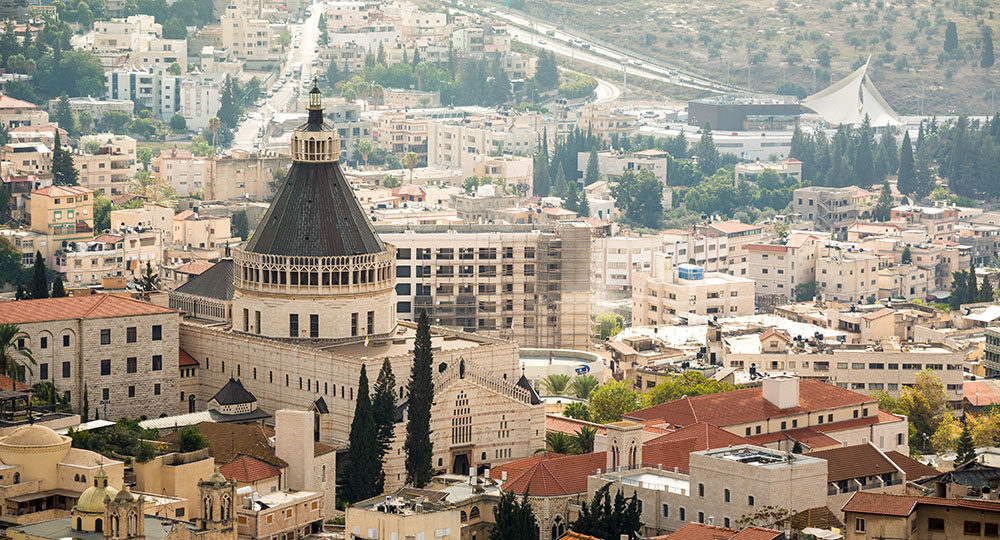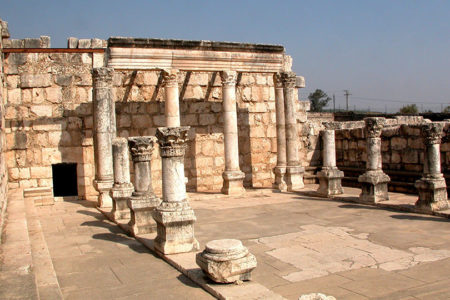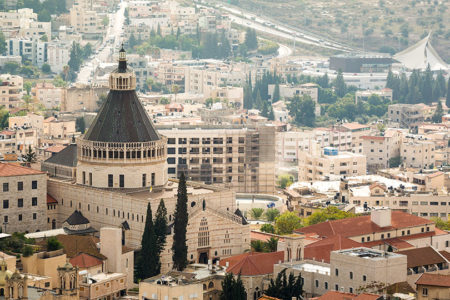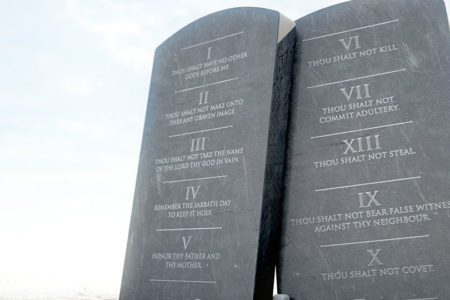Jesus’ Ministry in His Hometown: Luke 4:16–30
I was scared stiff at the prospect of preaching in my hometown! A few years earlier, I had come to the Lord in a church in Spartanburg, South Carolina. Everyone at home knew me as the kid who went off to study for the ministry. I had preached on street corners and in jails over the past year, while in college, but this was the first church sermon I had been asked to deliver. The preacher boy had come home. I prepared and prayed and prayed and prepared. Finally, the big day arrived. Then, to my utter dismay, 12 minutes after I began the sermon, I had finished everything I had to say.
While the pastor gave the final prayer, I slipped off the platform, headed down a hallway, sat on the back steps of the church, and cried. I thought I had failed miserably before my home church. But when a wise elder found me and brought me back to the vestibule, I discovered that the people were not upset with me, as I had thought. They rather liked the idea of a 12-minute sermon.
I think of that experience whenever I read the account in Luke 4:16–30 of Jesus preaching in His own synagogue: “And he came to Nazareth, where he had been brought up” (Lk. 4:16a).
The Situation
“ … and, as his custom was, he went into the synagogue on the sabbath day, and stood up to read. And there was delivered unto him the book of the prophet, Isaiah” (Lk. 4:16, 17).
In modern Nazareth, down a back alley and about six feet below the present street level, is the reconstructed ruin of an ancient synagogue. Hebrew inscriptions found nearby confirm the 1,300-year-old tradition that this was the site of the first-century synagogue Jesus attended and where He delivered His dramatic sermon. A highlight of the Institute of Biblical Studies tours to Israel is gathering in this room and remembering the events Luke so graphically recounts.
The passage comes alive when we recognize how closely it fits with Jewish customs and practices. In ancient times, even as it is today, the Sabbath service consisted of prayers, a reading from the first five books of Moses, a reading from the prophets, and a sermon. The Scripture readings follow a definite cycle in which the entire Pentateuch (or Torah) is covered in one year. Each of these Torah readings is then supplemented by a selected reading from one of the Prophets (called the Haftarah). This procedure, followed by a sermon, is also seen in Acts 13:14–15: “But when they departed from Perga, they came to Antioch in Pisidia, and went into the synagogue on the sabbath day, and sat down. And after the reading of the law and the prophets the rulers of the synagogue sent unto them, saying, Ye men and brethren, if ye have any word of exhortation for the people, say on.” According to the passage in Luke, the initial prayers and reading from the Torah had been concluded. Those readings were done by laymen in the congregation, since there were no resident congregational rabbis at that time. As a young man who had achieved some notoriety away from home, Jesus assumed His responsibility to be one of the readers of the Torah. The scroll of the prophet Isaiah was handed to Him by the attendant (see v. 20), or chassan, the person in charge of the service and the scrolls.
In the synagogue liturgy, selections from Isaiah are read in the summer months of July and August. For many years this had been practiced in the Nazareth synagogue. Thus, we can infer certain things about the situation in Nazareth at that time. It was probably a hot, lazy Saturday morning in August when Jesus read from the prophet Isaiah. This Sabbath, however, was different from any other. What Jesus read, and how He applied the text, resulted in a near riot, the likes of which that little Jewish congregation had never witnessed.
The Exposition
And when he had opened the book, he found the place where it was written, The Spirit of the Lord is upon me, because he hath anointed me to preach the gospel to the poor; he hath sent me to heal the brokenhearted, to preach deliverance to the captives, and recovering of sight to the blind, to set at liberty them that are bruised, To preach the acceptable year of the Lord. And he closed the book, and he gave it again to the minister, and sat down. And the eyes of all them that were in the synagogue were fastened on him. And he began to say unto them, This day is this scripture fulfilled in your ears (Lk. 4:17–21).
The passage Jesus read was Isaiah 61:1–2, but He cut off the reading of verse 2 before the statement, “and the day of vengeance of our God,” because Jesus stated clearly that the passage He read was being fulfilled that very day (Lk. 4:21). The promises of Isaiah 61:1–2 that the Lord would send an anointed one to preach the gospel, heal the brokenhearted, proclaim deliverance, and set free the oppressed were being fulfilled in His coming as Messiah. The statement in Luke, “The Spirit of the Lᴏʀᴅ is upon me, because he hath anointed me,” is the same as saying, “I am the Messiah.” Messiah is the Hebrew word Mashiach, or anointed one. No clearer claim to messiahship could be made than to identify Himself with the anointed one of Isaiah 61:1.
Jesus did not fulfill another aspect of the Messiah’s role, however, in His earthly ministry; that still awaits fulfillment: “the day of vengeance of our God.” That also will be fulfilled, but at His Second Coming (Rev. 19:11–16). How precise is the fulfillment of messianic prophecy.
Another significance to Jesus’ use of Isaiah 61:1–2 in the Nazareth synagogue concerns the phrase, “To preach the acceptable year of the Lᴏʀᴅ” (Isa. 61:2; Lk. 4:19). Other translations render this phrase, “the year of the Lᴏʀᴅ’s favor.” Many commentators believe the phrase is a reference to the Year of Jubilee, which took place every 50 years (Lev. 25:30). During that year, freedom was proclaimed to captives and each person was to return to his property.
What makes this even more striking is that, according to Jewish reckoning, a Jubilee year occurred during Jesus’ ministry. According to the information given by the Jewish historian, Josephus, it can be calculated that a Jubilee year occurred in 26–27 A.D. “Thus Jesus’ citation took account of the actual Jubilee year in which his ministry began and from which it gained a background of eschatological expectancy” (A. Strobel, Kerygma and Apocalyptik, and J. D. Yoder, The Politics of Jesus).
If this is the case, the revolutionary claim that He was initiating the spiritual Jubilee redemption must have exploded like a bombshell that Saturday morning in Nazareth. No doubt many wondered, “How could this young man, who grew up down the street and played with us as a child, be the promised Messiah who will set us free?”
It is only by faith in Him that true freedom is obtained-freedom from fear, guilt, man-made ordinances, and sin and its consequences.
The Application
It appears that the truth of all this did not immediately hit Jesus’ hearers. Initially, they marveled at the young man’s sermon. “And all bore him witness, and wondered at the gracious words which proceeded out of his mouth. And they said, Is not this Joseph’s son?” (Lk. 4:22). However, Jesus drove home the application they needed:
And he said unto them, Ye will surely say unto me this proverb, Physician, heal thyself; whatever we have heard done in Capernaum, do also here in thy country. And he said, Verily I say unto you, No prophet is accepted in his own country. But I tell you of a truth, many widows were in Israel in the days of Elijah, when the heaven was shut up three years and six months, when great famine was throughout all the land; But unto none of them was Elijah sent, but only unto Zarephath, a city of Sidon, unto a woman that was a widow. And many lepers were in Israel in the time of Elisha, the prophet; and none of them was cleansed, but only Naaman, the Syrian (Lk. 4:23–27).
Jesus knew that even when His hearers realized they were actually the blind ones who needed to see, they still would not readily accept His message. His statement about a prophet being honored everywhere but in his home found graphic fulfillment in His immediate family, because His own brothers did not believe in Him until after the resurrection (Jn. 7:5).
Jesus then referred to the incidents of Elijah’s being sent to the Gentile Sidonian woman (1 Ki. 17:9 ff.) and Elisha’s healing of the Gentile Naaman (2 Ki. 5). His point was that these prophets were not sent to Israelites but to Gentiles. If Israel was unworthy, then God would send His prophet elsewhere—even if it was to the Gentiles. He knew that His own hometown crowd would not accept the message intended for them, but many Gentiles would later accept that same message.
His unflattering application was not received with thankfulness: “And all they in the synagogue, when they heard these things, were filled with wrath, and rose up, and thrust him out of the city, and led him unto the brow of the hill on which their city was built, that they might cast him down headlong. But he, passing through the midst of them, went his way” (Lk. 4:28–30). Visitors today can see, outside of Nazareth, a sheer cliff that drops over 500 feet to the floor of the Jezreel Valley. It is still referred to, not without justification, as the precipice.
Although their efforts to kill the brash young preacher boy failed, their reaction does indicate a sober truth. No greater blindness exists than among those who refuse to admit that they are blind. While Nazareth was the place of His youth, it did not become the headquarters for Jesus’ ministry. That distinction was reserved for little Capernaum, a fishing village on the northern shore of the Sea of Galilee (Lk. 4:31 ff), where He performed so many of His miracles. There is no record, however, that He ever performed a miracle in Nazareth.
This amazing incident comes to life when we see it against its Jewish cultural and historical setting. The electricity of the incident cannot be adequately captured on paper. It must have been humbling for an older resident of Nazareth to be confronted by the kid down the street with such a momentous message. How often pride, ethnic or spiritual, keeps us from receiving what the Lord has for us. Jesus had to go elsewhere to find a receptive audience.
Jesus once told a parable about seed that, when sown by the wayside, was picked up by the birds and never took root. Other seeds, however, fell on good ground, took root, and bore fruit (Mt. 13:3–9). When Jesus sowed the seed of His Word that day in Nazareth, the wicked ones soon snatched it away (Mt. 13:19). May we be among those who hear Jesus’ Word, understand it, and bear fruit.









Every time I read this passage of scripture, from within my Soul I always hear the question ‘when will preach gospel ‘. Please help me understand; could this be my Calling?
Very nice and inspiring message Dr. William Varner.It was like a similar experience of mine when I asked to preach first time in our church I got the same texts I got it to read and preach.
Thank you
Isaac moon
Pastor
Bangalore
India.